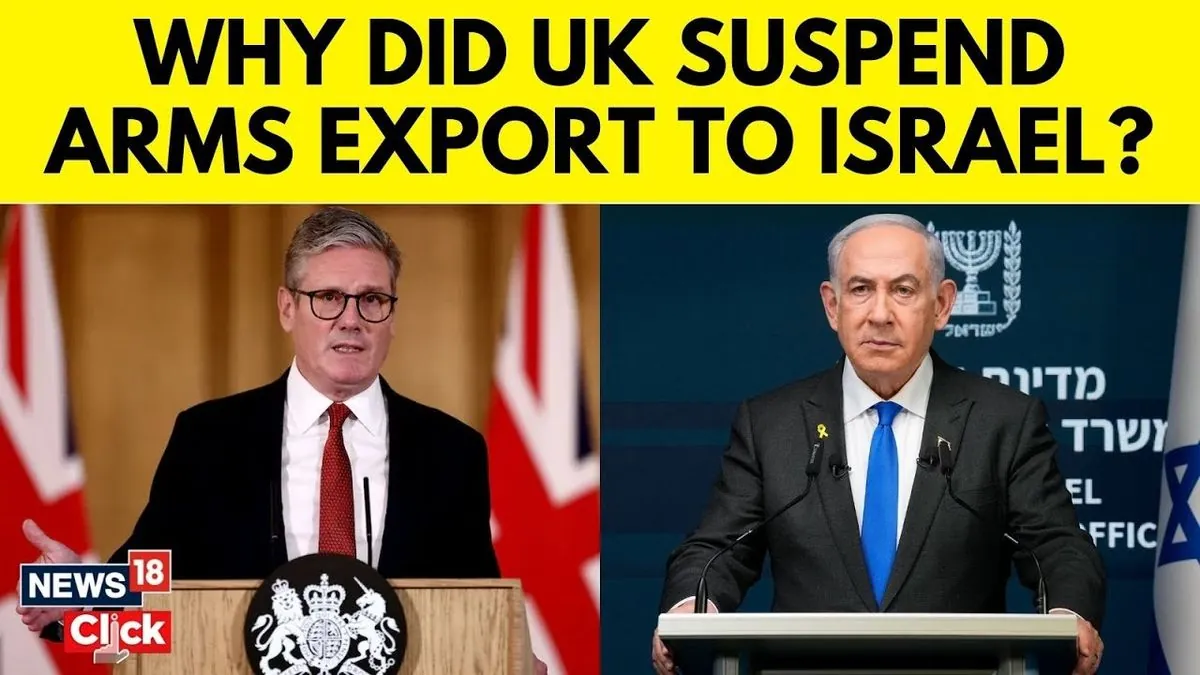The UK government's recent decision to suspend 30 licenses for arms exports to Israel has sparked significant controversy. Critics argue that this move is politically motivated and legally questionable, potentially undermining support for a key ally in a complex regional conflict.
David Cameron, the UK Foreign Secretary, announced the suspension last week, citing concerns about Israel's treatment of detainees and aid facilitation in Gaza. However, experts point out that these reasons do not align with the legal criteria for such a decision, which requires "a clear risk that the items might be used to commit or facilitate a serious violation of international humanitarian law."
The timing of the announcement has raised eyebrows, as reports suggest the UK had already halted new arms export licenses to Israel in July 2023, months before completing its promised legal review. This sequence of events has led to accusations of the government putting politics before proper procedure.
Legal experts highlight a disconnect between the government's stated concerns and the applicable legal test. The UK's export controls regime sets specific requirements for justifying an export ban on particular items. It does not allow for bans based on political considerations or factors unrelated to the use of the items in question.
"The UK Government can only grant export licenses for arms if it is confident that the those [sic] arms will not be used in breach of international humanitarian law."
This statement has been criticized for inverting the legal test, which actually requires evidence of a "clear risk" of misuse, not absolute certainty of proper use.
Observers familiar with the situation on the ground present a different picture. Members of the High Level Military Group have reported that Israel's efforts to minimize civilian casualties and adhere to principles of proportionality in targeting exceed the capabilities of British and US forces.
A recent visit to Gaza by a Western military delegation provided firsthand observations of the Israel Defense Forces' (IDF) measures to facilitate aid delivery and prevent civilian casualties. At the Kerem Shalom crossing, they witnessed the complex process of aid inspection and distribution, noting that while there were challenges, significant amounts of aid were entering Gaza.
According to statistics from COGAT, since the conflict began on October 7, 2023, over 50,000 truckloads of aid have entered Gaza, totaling nearly 1 million tons. The aid refusal rate at inspection stands at a mere 0.009%, indicating a high level of cooperation in the aid delivery process.
Critics of the UK's decision warn that it could have unintended consequences. Contrary to claims by David Lammy that the change would not significantly impact Israel's security, experts argue that it may embolden Hamas and other groups supported by Iran, potentially prolonging the conflict and complicating efforts to release hostages.
As the situation continues to evolve, the UK's decision remains a subject of intense debate, raising questions about the intersection of law, politics, and international relations in times of conflict.
